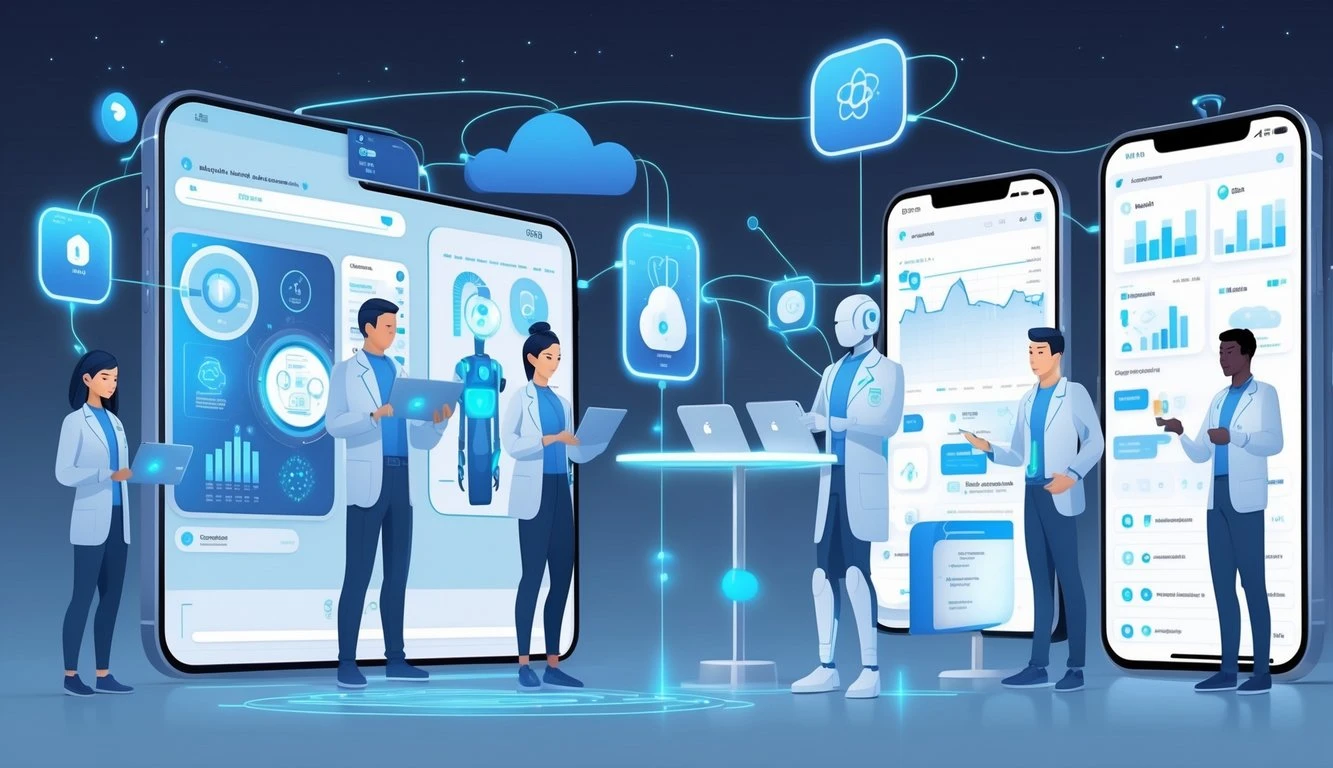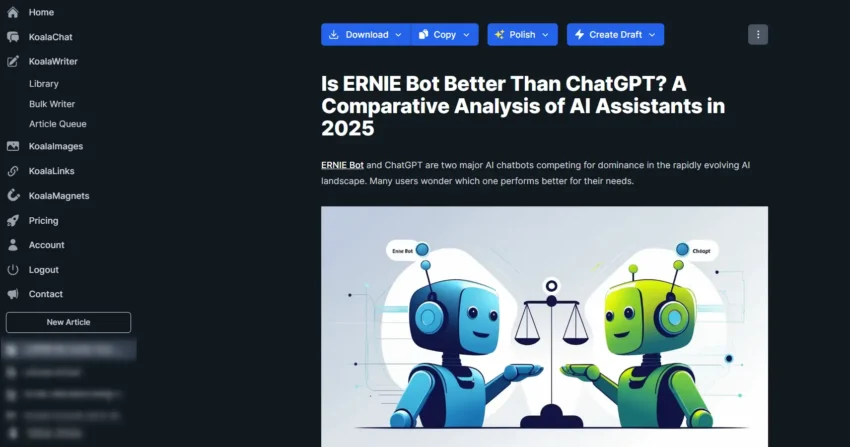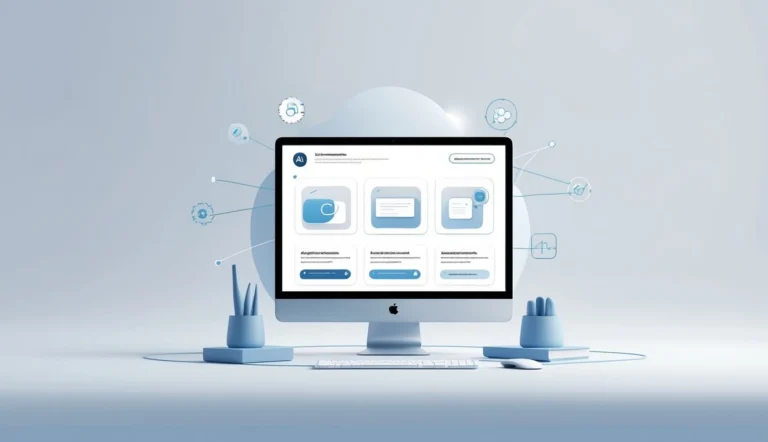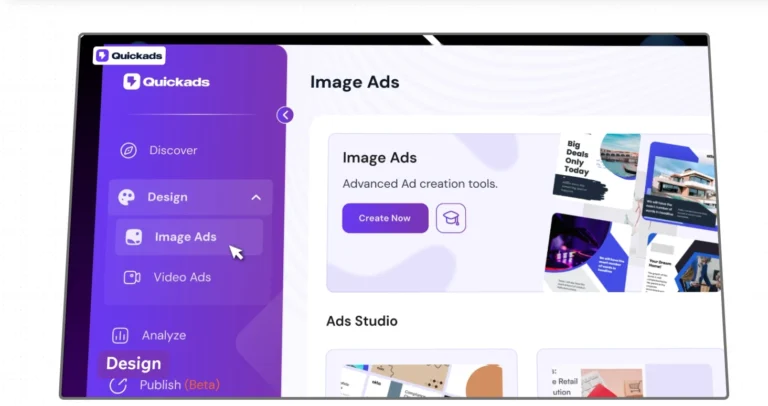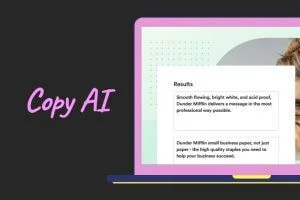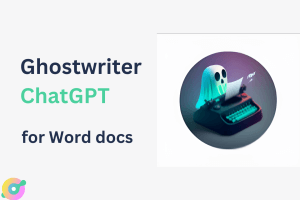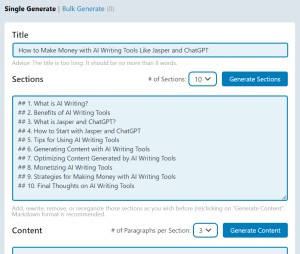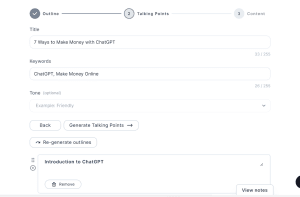Have you ever noticed how some apps and tools can do things for you, almost like they know what you want? These aren’t just robots—they are called AI agents, and they’re changing the way technology helps you in daily life.
AI agents are software systems that can make decisions, handle tasks, and reach goals without humans telling them exactly what to do every step of the way.
Just like a personal assistant, AI agents can reason, plan, and even remember information to finish their work.
If you’re curious about what makes AI agents special, how they work in the background, or why companies are investing so much in them, you’re in the right place.
This article will break down what AI agents are, how they help in real-world tasks, and what makes them different from regular programs. Get ready to see how these advanced tools can make your digital life easier.
Definition and core concepts
You may have heard a lot about AI agents and what they can do in tech today. Knowing what they are and how they work helps you see how they change your daily tasks.
AI agents can process tasks, answer questions, and even make choices on their own. They use data, rules, and sometimes even learning from experience.
This quick guide gives you the basics on what AI agents do, how they are made, and the different types you might use or meet.
What are AI agents?
AI agents are digital programs that can act on your behalf. Their main goal is to observe what’s happening, make a decision, and then take action. These agents do not just follow set rules—they can also learn from what they see and do.
For example, a chatbot that answers customer questions is an AI agent. It takes in your words, understands them, and responds without needing help from a real person. Some agents can even decide what to do next if they get new information.
You can use AI agents for tasks such as setting reminders, searching for answers, or even running customer support. Sometimes, they can operate without much direction once you set them up.
This makes them helpful in businesses, homes, or even for personal use.
Key components of AI agents
AI agents have some core parts that help them do their job well:
1) Sensors or Inputs: These get information from the world around them, which could be your words, images, or data from a system.
2) Processors or Brains: This is where agents decide what to do. The processor uses logic, rules, or even learning to pick an action.
3) Effectors or Outputs: These act on the decision. Outputs can be an answer to your question, a completed task, or even a simple action like sending an email.
Most AI agents also have a memory so they can remember past events or actions. Some advanced agents even use learning, so they improve with continuous use.
These building blocks help agents work on their own with little to no help from people.
Types of AI agents
You’ll see different types of AI agents depending on what they do and how they work:
- Simple Reflex Agents: Act only on direct input, with no memory of what came before.
- Model-Based Agents: Use a simple memory that helps them remember what has happened in the past.
- Goal-Based Agents: Plan actions by thinking about steps needed to reach a goal.
- Learning Agents: Change and get better with experience, learning from each task they finish.
Customer support bots are often model-based or goal-based. Virtual helpers, like smart assistants, may be learning agents. Simple reflex agents could include basic spam filters.
Each type suits specific jobs or environments.
How AI agents work
AI agents are making big changes in how work gets done. These computer systems can see what is around them, make decisions on their own, and take action without direct help from people.
You rely on them for repetitive jobs, problem-solving, and even daily reminders. They work quietly in the background, connecting apps or fixing issues before you even notice.
You benefit because these agents run on clear steps: they sense the environment, make choices based on what they find, and then act in ways that help you.
Perception and sensing
AI agents start by taking in information. They see, hear, or collect data through sensors, cameras, or internet feeds. For example, a chatbot collects your typed questions, while a smart home device might listen for voice commands.
This process is called perception. The agent converts raw signals, like images or words, into information it can use. This can be as simple as reading a text or as complex as spotting an object in a camera image.
Examples:
- A robot sees obstacles to avoid bumping into things.
- A weather agent reads temperature and humidity to give you a forecast.
- Customer service bots analyze your messages to find out what help you need.
Strong sensing skills help agents react faster and give better answers. Without the right sensors, an agent could miss important changes or not understand your needs.
Decision-making processes
Once the agent has information, it needs to decide what to do next. Good agents use rules, models, or simple logic to pick the best action. Sometimes they follow a set checklist. Other times, they learn from the past to improve future choices.
You notice this every time your email filters spam or your calendar helps you schedule a meeting. The agent compares what it knows with what you want, then chooses the most helpful step.
How agents decide:
| Step | Details |
|---|---|
| Assess | Look at the current situation and needs |
| Plan | Compare choices and predict results |
| Choose | Pick the action most likely to succeed |
| Learn | Update actions based on feedback/results |
Not every agent learns the same way. Some just follow orders. Others keep adjusting—getting smarter with each use. Systems like these are common in both business and personal tech.
Interaction with environments
The final step is for the agent to act and interact with the world. You see this when a delivery robot moves a package, a voice assistant sets a timer, or an online agent responds to your question.
Agents don’t only talk with people. They can manage machines, update software, or move objects in a warehouse. Each action tries to change the environment in the way you need.
Ways agents interact:
- Text or speech (chatbots, assistants)
- Moving objects (robots)
- Sending commands to other devices (smart homes)
- Editing files or data
Some agents work alone, while others join teams to handle bigger tasks. Grouped agents can solve tough problems by sharing what they know.
Agents that respond quickly and smoothly give you the best user experience. The more natural their interaction, the easier your day gets.
Applications of AI agents
AI agents have become common in the world around you. From tools at work to features on your phone, these systems help manage tasks and make daily life easier.
You might notice AI agents when you get reminders, see suggestions online, or shop on the internet. These tools can handle many actions that you used to do yourself.
Many companies use AI agents to finish jobs faster, save money, or solve problems that need a lot of attention. This help can come in many forms, as shown below.
Business and enterprise use cases
In the business world, AI agents run tasks that would usually take a group of workers. For example, they manage calendars, answer customer questions, and track shipments.
These agents operate all day and night, which means your business can serve people in different time zones.
Companies also use AI agents to look through lots of data in a short time. This lets you spot trends, manage inventory, or handle payments. For instance, banks can use these agents to send alerts about fraud or help approve loan requests fast.
Some advantages of using AI agents in business include:
- Lower costs: They help cut the need for extra staff.
- Consistent service: You get the same response every time.
- Fast results: Many jobs can be finished in seconds.
Big brands often rely on AI agents to achieve goals faster and with fewer mistakes.
Autonomous vehicles
Besides business, AI agents are key in running self-driving cars, trucks, and delivery robots. They process information from sensors in real time, using cameras, radar, and GPS data to decide what to do next.
These agents make driving choices such as when to stop, change lanes, or avoid obstacles. They keep riders safe by reacting to hazards faster than most people can.
Some features in autonomous vehicles powered by AI agents:
- Navigation and route planning
- Traffic sign recognition
- Collision avoidance
Self-driving technology is now found in public buses, taxis, and delivery vehicles. AI agents support safer streets and smooth traffic flow by sensing their environment and making smart choices.
Virtual assistants
You use AI agents every day through virtual assistants like Siri, Alexa, and Google Assistant. These systems listen to your questions, understand your needs, and respond.
AI agents help you set reminders, send messages, search for answers, and play music on request. They adapt the service to you by learning what you ask for most.
Other uses of AI agents as virtual assistants:
- Reading your texts aloud while you drive
- Helping you make a shopping list
- Controlling smart home devices
These assistants make life easier by letting you talk to your devices instead of typing. Businesses also use them to answer questions for customers or schedule meetings automatically.
Benefits and challenges
AI agents are everywhere now, from helping you shop online to answering your questions when you use chat. These digital helpers are getting smarter and handling more tasks for you every day.
Still, there’s a lot to know about what makes AI agents useful—and what might make using them tricky. If you want to get the most out of AI agents, it helps to see both sides.
Advantages of AI agents
AI agents can save you a lot of time by taking care of simple or repetitive jobs. For example, they can answer customer service questions, set reminders, or even help doctors read scans. This lets you focus on bigger tasks that need real attention.
Using AI agents will often lower expenses because you won’t need as many staff for basic work. You also get answers and actions much faster, speeding up your day.
Based on industry feedback, companies see big improvements in productivity and quicker decision-making.
AI agents work all the time—they do not need breaks, get tired, or make decisions based on emotion. This makes them dependable for tasks like customer support, order management, or finding patterns in data.
In services, fast responses improve your experience, while businesses enjoy reliability and efficiency.
Here are a few key benefits:
- 24/7 operation: They work day and night without getting worn out.
- Cost savings: Fewer people are needed for routine jobs.
- More accurate decisions: They follow set rules and use data, lowering mistakes.
- Better customer service: People get responses quicker and can get help any time.
Limitations and risks
While AI agents do a lot, there are challenges and risks you can’t ignore. One of the main problems is that these agents sometimes make mistakes if they don’t have the right data or instructions.
They can also miss the context that a real person would notice, leading to confusing or wrong answers.
Using AI agents may lower the number of staff needed for some jobs, but it also means some workers need to learn new skills or switch careers. Privacy is another concern, because your data might be stored or used in ways you don’t expect, putting your information at risk.
According to recent discussions, these agents might make biased decisions if the data they learn from isn’t fair or balanced.
Key risks and downsides include:
- Errors without oversight: They can make poor choices if used alone.
- Lack of human touch: Some situations need empathy that only people provide.
- Job changes: Some jobs might go away or shift, so training becomes important.
- Privacy issues: Your personal data needs strong protection.
If you use AI agents, keep these risks in mind and always check important work. That way, you get the benefits without giving up safety or quality.
Future developments in AI agents
New AI agents are changing the way you get tasks done. They are taking on more work themselves and even making decisions with less help from people.
You will see smarter and faster agents that save time across different fields. These updates are shaping how you work, learn, and do business.
Trends in AI agent research
AI agents are working more independently now. You can expect them to handle complex tasks without needing constant instructions. Improvements in memory and planning help these agents learn from past actions and adjust their choices.
This means you will spend less time managing them and more time getting things done.
Researchers are adding new features to help agents reason more clearly and solve harder problems. For example, scientists are focusing on agent “reflection,” which lets them look at previous answers and make corrections when needed.
Tools like chain-of-thought reasoning make it possible for agents to break down complicated steps, so solutions are easier for you to follow.
Teams are also making these agents better at understanding what you want, with sharper user interfaces and clear communication. As these features improve, agents will feel more helpful and natural to use.
Potential impact on industries
AI agents are already reshaping how companies work. In offices, they handle scheduling, data entry, and project updates. In hospitals, agents track patient records and send reminders for treatments. Retailers use them to manage inventory and help with customer questions.
Some factories now use agents to keep equipment running and to predict maintenance needs. Financial services are seeing agents help with fraud alerts and faster service for clients.
Education is changing, too, as agents provide tutoring and automate grading.
This table shows some ways these tools are helping businesses:
| Industry | How AI Agents Are Used |
|---|---|
| Healthcare | Managing appointments, keeping records |
| Retail | Helping customers, tracking orders |
| Manufacturing | Equipment monitoring, quality checks |
| Finance | Alerts, customer service, risk analysis |
| Education | Tutoring, grading, student support |
Learn more about how AI agents are shaping work in business and beyond. As these tools keep improving, you’ll see more jobs becoming simpler, faster, and easier to manage.
AI Agents and Us
You use AI agents every day, sometimes without even knowing it. These tools make decisions, solve problems, and help finish tasks. They can answer questions, process information, or even manage projects for you.
Businesses use AI agents to automate parts of work, such as scheduling meetings or tracking inventory. In other cases, AI agents may help in finance, healthcare, or customer support. You can also see them in shopping apps, helping find products you like.
AI agents use technology to notice patterns and act on their own. They get better as they learn from the information around them, making your life easier in big and small ways.
AI Agents FAQs
What examples demonstrate the application of AI agents in various industries?
- Banking: AI agents review transactions to spot fraud. Virtual chatbots answer customer questions any time of day.
- Healthcare: AI agents manage patient records and schedule appointments. They help doctors by checking symptoms and suggesting care plans.
- Retail: AI agents suggest products, track shipments, and answer questions online.
- Manufacturing: AI agents control robots and plan how to use machines for faster work.
- Project management: Some AI agents handle tasks, track due dates, and keep teams updated on progress.
How do AI agents operate within the cryptocurrency market?
AI agents in crypto look at prices, news, and market data every second. They buy or sell coins based on set rules or patterns they notice. Some trade for you automatically, using complex formulas.
These agents can also send alerts about trends or risks. They help traders act faster and avoid common mistakes that humans make. Security and privacy are very important for these agents, since they deal with sensitive information.
What are the 5 types of AI agents?
- Reactive agents: Respond right away, but do not remember or learn from past events.
- Model-based agents: Use simple memory to improve results over time.
- Goal-based agents: Work toward a specific target, choosing the best action for that goal.
- Learning agents: Adapt from experience and get better as they gather more data.
- Utility-based agents: Weigh choices and pick actions that bring the most benefit.
What are the essential components of AI agent architecture?
- Sensors: Gather information from the world, like a camera or data feed.
- Actuators: Take steps in response, like sending an email or moving a robot arm.
- Processing unit: Decides what action to take, using rules or learned patterns.
- Memory: Stores past events to help with future decisions.
These components work together so an AI agent can notice, decide, and act in real time. This improves how the agent solves problems and completes tasks.
What steps are involved in developing an AI agent from scratch?
- Define the purpose: Decide what you want the agent to do.
- Collect data: Gather useful data for the agent to learn from or use.
- Choose an approach: Pick how the agent will make decisions, such as rules or learning.
- Build the model: Create the logic and systems the agent will use.
- Test and adjust: Try out the agent in real situations and refine it to make it better.
Each step helps you make sure your AI agent fits the task and works well in its environment.
Which frameworks are commonly used for building AI agents?
- TensorFlow and PyTorch: Popular for building smart, flexible agents that learn from big sets of information.
- OpenAI Gym: Used to train and test agents in game-like settings.
- Rasa: Good for making chatbots and voice-based agents.
- Microsoft Bot Framework: Helps create agents for use in business chat, customer support, and more.

